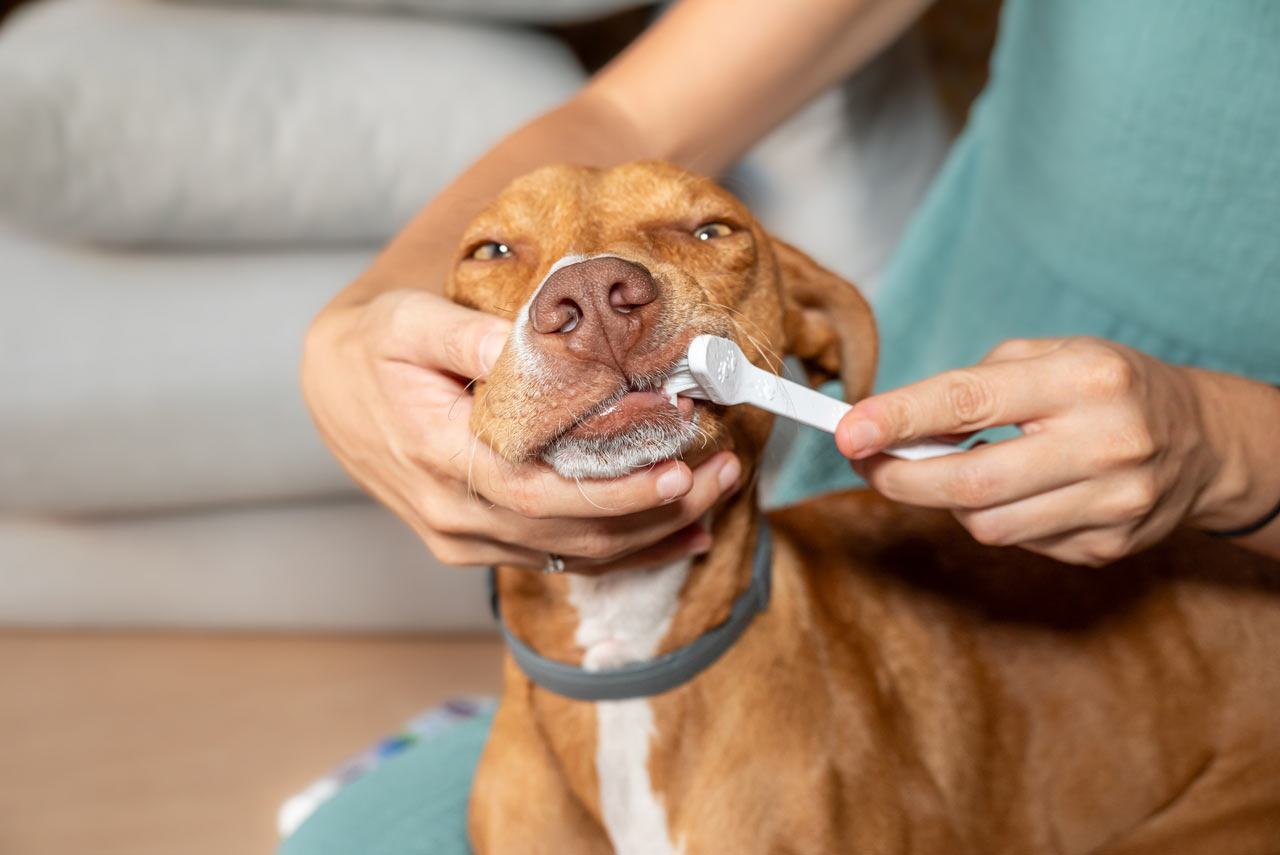Doggy Dental Care Matters: What You Can Do About It

Why Dental Care Is Essential
When you think of dog health, dental care may not be the first thing that comes to mind. Yet studies show that by age three, over 80% of dogs already have some form of dental disease.
What starts as tartar buildup and mild gum irritation can quickly progress to:
- Painful infections
- Tooth loss
- Abscesses in the jaw
- Damage to the heart, liver, and kidneys (as bacteria from the mouth enter the bloodstream)
Dental care isn't just about fresh breath — it's about protecting your dog's overall health and quality of life.
Learn more about bad breath in dogs (halitosis) and how it can signal underlying dental disease.
Signs of Dental Disease in Dogs
Watch for these common warning signs that your dog may already be affected:
- Bad breath that doesn't improve with diet changes
- Red, swollen, or bleeding gums
- Yellow or brown tartar buildup on teeth
- Drooling or pawing at the mouth
- Reluctance to chew toys or dry food
- Dropping food from the mouth while eating
- Loose or missing teeth
- Behavior changes — irritability or avoiding being touched on the face
In some cases, dental disease can lead to serious complications like a tooth root abscess.
If you notice any of these, schedule a veterinary exam. Dental disease is painful, but dogs are experts at hiding discomfort.
At-Home Prevention: What You Can Do
1. Daily Tooth Brushing (Gold Standard)
- Use a dog-safe toothbrush or finger brush.
- Only use pet-specific toothpaste (never human toothpaste — it often contains fluoride or xylitol, which are toxic to dogs).
- Start slow: let your dog lick the toothpaste first, then gradually introduce brushing.
- Focus on the outer surfaces of the teeth, especially the molars and premolars where tartar builds up most.
- Watch this video tutorial: How to Brush Your Dog's Teeth.
2. Alternatives if Brushing Isn't Possible
- Dental chews: Look for products with the VOHC (Veterinary Oral Health Council) seal for proven effectiveness.
- Water additives: Some can help reduce plaque and freshen breath.
- Special dental diets: Kibble formulated to mechanically scrape teeth as your dog chews. But remember — feeding hard food alone isn't enough.
- Dental wipes or gels: Helpful for dogs that resist brushing.
3. Healthy Habits
- Provide safe chew toys (avoid cooked bones, antlers, or very hard chews that can fracture teeth).
- Regularly inspect your dog's mouth for changes in breath, gums, or teeth.
Professional Veterinary Dental Care
Even with the best at-home care, most dogs will eventually need professional cleanings.
- Anesthesia: Safe, modern anesthetics make thorough cleanings possible — including scaling under the gum line, where disease starts.
- Dental X-rays: Allow your vet to identify hidden problems like root infections or bone loss.
- Treatment: Extractions, antibiotics, or other procedures may be recommended if disease is advanced.
“Anesthesia-free cleanings” may remove surface tartar but do not address the root of the problem and can give a false sense of security.
Why It's Worth It
Think of dental care as an investment in your dog's future. Benefits include:
- More comfortable meals
- Better breath (hello, snuggles!)
- Reduced risk of systemic illness
- Longer, healthier life overall
Make it a habit to regularly check your dog's mouth — what you see might surprise you, and early action can prevent bigger problems later.
Related Resources
Healthy Treats for Dogs: Smart Snacks That Support Health
Bad Breath (Halitosis) in Dogs
Is Feeding Hard Food Enough to Keep My Dog's Teeth Healthy?
Disclaimer: This website is not intended to replace professional consultation, diagnosis, or treatment by a licensed veterinarian. If you require any veterinary related advice, contact your veterinarian promptly. Information at DogHealth.com is exclusively of a general reference nature. Do not disregard veterinary advice or delay treatment as a result of accessing information at this site. Just Answer is an external service not affiliated with DogHealth.com.


